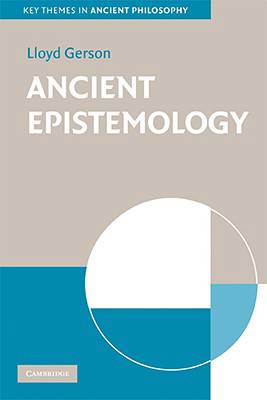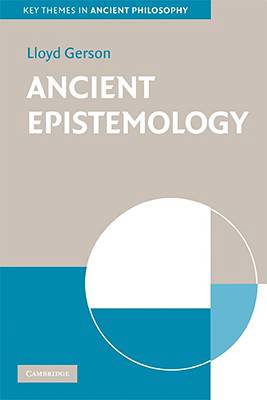
- Afhalen na 1 uur in een winkel met voorraad
- Gratis thuislevering in België vanaf € 30
- Ruim aanbod met 7 miljoen producten
- Afhalen na 1 uur in een winkel met voorraad
- Gratis thuislevering in België vanaf € 30
- Ruim aanbod met 7 miljoen producten
Zoeken
€ 59,45
+ 118 punten
Uitvoering
Omschrijving
This is the first title in the Key Themes in Ancient Philosophy series, which provides concise books, written by major scholars and accessible to non-specialists, on important themes in ancient philosophy which remain of philosophical interest today. In this book, Professor Gerson explores ancient accounts of the nature of knowledge and belief from the Presocratics up to the Platonists of late antiquity. He argues that ancient philosophers generally held a naturalistic view of knowledge as well as of belief. Hence, knowledge was not viewed as a stipulated or semantically determined type of belief but was rather a real or objectively determinable achievement. In fact, its attainment was identical with the highest possible cognitive achievement, namely wisdom. It was this naturalistic view of knowledge at which the ancient Skeptics took aim. The book concludes by comparing the ancient naturalistic epistemology with some contemporary versions.
Specificaties
Betrokkenen
- Auteur(s):
- Uitgeverij:
Inhoud
- Aantal bladzijden:
- 190
- Taal:
- Engels
- Reeks:
Eigenschappen
- Productcode (EAN):
- 9780521691895
- Verschijningsdatum:
- 16/03/2009
- Uitvoering:
- Paperback
- Formaat:
- Trade paperback (VS)
- Afmetingen:
- 150 mm x 224 mm
- Gewicht:
- 294 g

Alleen bij Standaard Boekhandel
+ 118 punten op je klantenkaart van Standaard Boekhandel
Beoordelingen
We publiceren alleen reviews die voldoen aan de voorwaarden voor reviews. Bekijk onze voorwaarden voor reviews.











